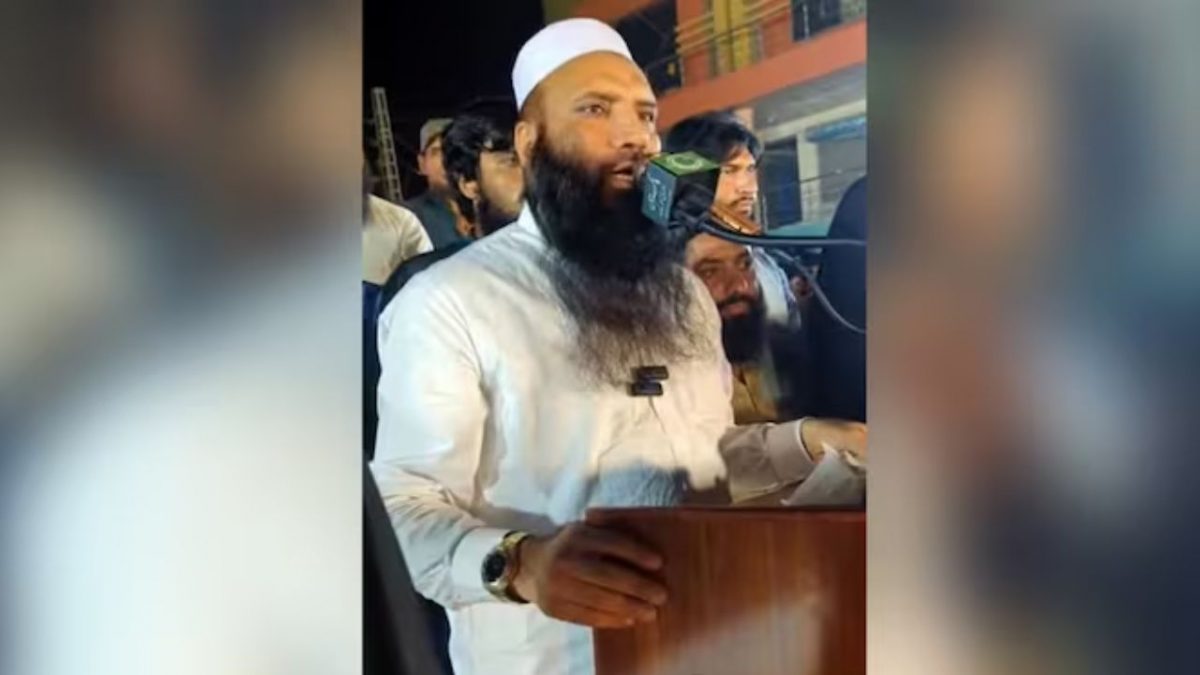The official word is that terror outfit Lashkar-e-Taiba (LeT) is banned in Pakistan. On the ground, however, LeT commanders are openly organising rallies, sharing the stage with the country’s well-known politicians and chanting anti-India slogans.
Several videos have surfaced on the internet showing Saifullah Kasuri, the alleged mastermind behind the deadly Pahalgam terror attack, addressing a crowd in Pakistan’s Punjab province.
The rally was held by the Pakistan Markazi Muslim League (PMML) to mark Youm-e-Takbeer, Pakistan’s annual commemoration of its nuclear tests.
But Kasuri was not the only ‘high-profile’ guest at the rally, Talha Saeed, son of LeT founder Hafiz Saeed and a designated terrorist by India, was also present at the event.
“I was blamed as being the mastermind of the Pahalgam terror attack, now my name is famous in the entire world,” Kasuri told the crowd.
Meanwhile, Talha Saeed, who ranks 32nd on India’s most wanted terrorist list, also delivered an incendiary speech and raised jihadist slogans against India.
Who is Saifullah Kasuri?
Indian intelligence has hinted at Kasuri being the mastermind of the Pahalgam terror attack that killed 26 innocent civilians, most Hindus, on April 22.
In his address in the Punjab rally, Kasuri announced plans to build a centre, road, and hospital in Allahabad in the name of “Mudassir Shaheed.”
Mudassir was reportedly one of several high-profile terrorists killed in May 7 strikes by the Indian Air Force on nine terror sites across Pakistan and Pakistan-occupied Kashmir.
Impact Shorts
More ShortsMore about Pakistan Markazi Muslim League
Experts widely view Pakistan Markazi Muslim League (PMML) as a political front of the banned LeT.
The group has intensified its anti-India campaign over the past few weeks, holding protests in major cities like Lahore, Karachi, Islamabad, and Faisalabad. They’re demanding the release of Hafiz Saeed, the UN-designated terrorist behind the 2008 Mumbai attacks, and accusing India of “water aggression” for suspending the Indus Waters Treaty.
India last month held the treaty in abeyance citing Islamabad’s support to extremist and terrorists who wage attacks across the border.
Despite the LeT being banned globally and in Pakistan, the PMML keeps its leadership relevant, with Saeed as its ideological driving force.
India has slammed Pakistan for normalising terrorism, especially after Operation Sindoor, which took out key LeT figures like Yusuf Azhar, Abdul Malik Rauf, and Mudassir Ahmad, linked to the IC-814 hijacking and Pulwama attack.
Pakistan’s links to extremists out in open, yet again
The massive event in Punjab attended by high-profile terrorists yet again lays bare Islamabad’s tacit support to these radical groups, despite the country claiming to be the biggest victim of terrorism.
While the Pakistani Army and the government repeatedly bar opposition leaders from holding political rallies, they have seemingly no problem in enabling dissemination of hate and extremism from people associated with banned outfits globally.
This again raises the question whether Pakistan deserves to be bailed out by global financial institutions like the International Monetary Fund (IMF) and the World Bank as it continues to shelter terrorists and extremists.
Indian Defence Minister Rajnath Singh on May 16 had criticised the IMF for the recent $1 billion aid package for Pakistan, saying Islamabad would use the money to fund terrorists who target armed forces and civilians in India.
“..I believe Pakistan will spend a large portion of the funds received from the International Monetary Fund on terror infrastructure in its country….India wants IMF to re-think funding to Pakistan..,” Singh said while speaking at Bhuj airbase in Gujarat state.
Despite strong reservations from India, the IMF earlier this month approved the immediate disbursement of about $1 billion to Pakistan as part of a bailout package.
The move was heavily criticised by the Indian public and the government, with concerns mounting that the money would be used to fund terror infrastructure in the country.


)

)
)
)
)
)
)
)
)



